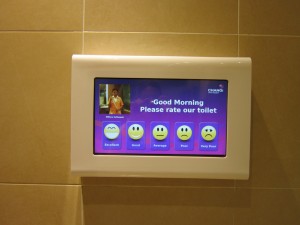Customer satisfaction surveys are saturating e-mail inboxes with each customer experience. Out-of-the-box survey collection softwares and tools are making it too easy. Couple that with ubiquitous adoption of email marketing, and every customer with an e-mail address now is drinking from a firehose of customer satisfaction surveys.
If I responded to every customer satisfaction survey that lands in my inbox, I would do nothing all day but respond to customer satisfaction surveys. As a result, I find myself allocating feedback (and valuable time) to companies, products and services with at least one of two characteristics:
1. Significant Past Involvement. Companies I have had significant involvement with — such as a large purchase, very good or very bad experiences. I feel compelled to inform companies whether they delivered on their promise. Yes, great! No, here’s a rant!
2. Significant, Anticipated Future Involvement. Companies I expect to have significant involvement with in the future. Usually motivated by loyalty and occasionally mandated by some other force, I feel compelled to inform companies not only whether they delivered on their promise in the past, but what they need to change in order deliver on their promise in the future. I want companies I intend to (or have to) do business with in the future to know exactly how to satisfy me.
On recall, I can tell you I responded to satisfaction surveys in the past few weeks from Amazon, JetBlue and Enterprise. I even responded to surveys from Facebook and Twitter about their user experiences. I admire these brands, spend a lot of time and money with them, and plan to do so in the future. I like them and want them to succeed and have a relationship with me.
Conversely, I land on about three or four websites a day where I’m intercepted with a customer feedback survey, but I now can’t recall which companies they are. I only remember that I was annoyed by them, and that’s a bad place to be! 🙂

What does all this mean? More Exacting Customer Feedback Responders
Customers in every industry must be more selective with their time and attention when it comes to giving feedback. They must choose which surveys they’ll respond to amidst a growing volume of choice. By law of physics, response rates will continue to go down on average, and respondents will lump into more defined segments based on their more exacting survey selection criteria.
You might say that survey participation has always been a challenge, and that’s why market researchers use incentives. That may be true, but incentives typically lure a small subset of poor-quality, professional survey takers, who seek monetary rewards — especially in mass-market consumer goods and services. Incentives will have to get better, yet that will only intensify more exacting selection criteria.
The Future
By definition, satisfaction feedback comes from more engaged customers. However, I predict that feedback will come increasingly from only the most engaged customers with a significant stake — not casual ones. This is a generalization, to be sure. But based on the number of surveys people are getting, they’re going to have say “no” to a lot more. People just don’t have mouths or stomachs big enough to drink from the customer survey firehose.
###
Photos: Jason Garber and Heather McQuaid

